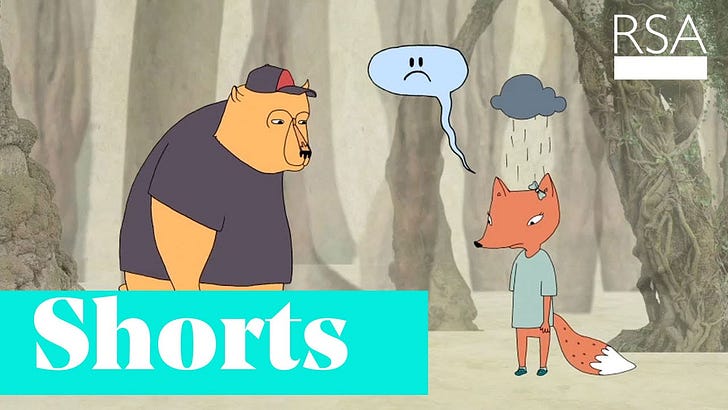What are the most important attributes in friendship? Loyalty, sense of humor, and honesty are probably near the top of most people’s lists for good reason. Who wouldn’t want friends that have their back, make them laugh, and tell them what they need to hear? This week, I have been thinking about presence. Not the basic form of presence that comes as a monthly phone call or a random visit but a real presence where your friend shows up deeply and empathetically. In an oddly synergetic way, this occurred both in real life and in the weekly portion that the Jewish people read over the weekend.
Right before and after verses 35-36 of Numbers 10, there is a notation in the Torah scroll itself. Surrounding the words at the end of chapter 10 are two inverted “nuns,” one of the letters of the Hebrew alphabet. It looks like this:
They surround the words that form the base of the Torah service the Jewish people pray weekly: “When the Ark was to set out, Moses would say: Advance, God! May Your enemies be scattered, And may your foes flee before you! And when it halted, he would say: Return, God, you who are Israel’s myriads of thousands!”
As you might imagine, much ink has been spilled on why these inverted letters surround these words, as they are the only ones that appear in the 5 books of Moses. One potential answer comes in the form of an internal contradiction. How could it be that this text implies that Moses is in control of the movement of the ark and the people when we’ve already established that God is the one who dictates the movement?
The answer comes in the form of a Rabbinic teaching called a Midrash1 where it relates a parable.
A king goes on a journey and takes his dearest friend along with him. When he travels, he says: I will not go further until my friend tells me to; and when he desires to camp, he says: I will not camp unless my friend tells me to.”
So the contradiction is reconciled. Yes, God does control the ultimate movement but God empowers Moses to actually be in control in the moment. You say we can go and we’ll go but if you want to stay, we can stay. This struck me as one of the more powerful aspects of the partnership between God and Moses, and one that is made manifest in some of our deepest relationships.
Earlier this week, I was having one of those weeks where everything had been piling on. In my weekly learning with a friend, he asked how I was and gave him the blow-by “fine” answer. He knows me and pushed back. I tried to brush it off but he doggedly kept at it until I finally revealed to him all the things that had been troubling me. We stayed on the video call for nearly an hour while he held the space, asked a lot of questions, and listened in silence.
In that space, I was struck by how much I had been holding on to. I needed my friend to call me on my bullshit and say, no, you’re not going to get to move on from this. Let’s talk it through. You need to “camp” here and I am going to sit with you. When you feel ready to keep going, I will be there with you too. It reminds me of one of my favorite videos on empathy:
I have been holding on to that moment all week. Being an empath is such a vital role in friendship. Being hyper aware of our friends’ emotional well being so that we can really be in it with them is the sign of a true friendship. It wasn’t solution oriented. It was just intense presence. I felt so seen being on the other side of that dynamic.
It would be a bit anachronistic to make the claim that these inverted letters are some signal to the reader about friendship. Yet, they do signal something. The Rabbis’ understanding of the relationship between God and Moses reflects how divine it feels when we have those people in our life who show up in the realest of ways. As our social spheres continue their return to some semblance of normalcy, I hope that you too can be reminded of this powerful aspect of presence, both as the giver and the receiver.
Sifrei Bamidbar: 84:2



